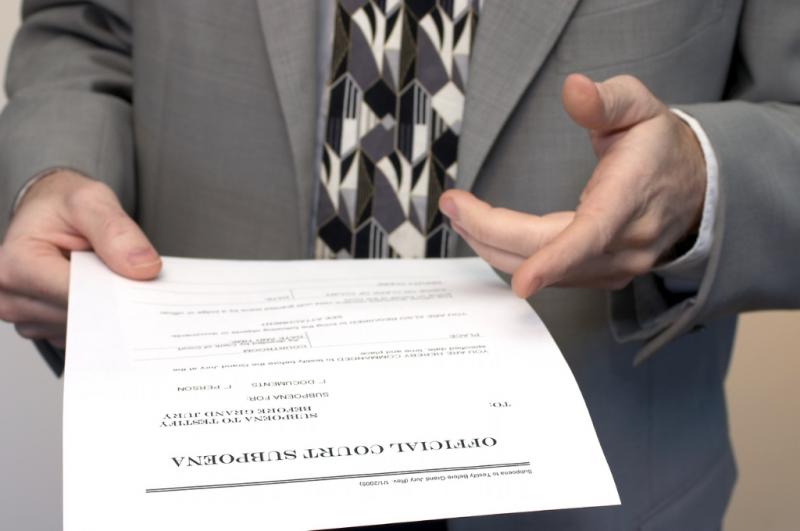Can Divorce Lawyers Subpoena Bank Records?

If you are getting a divorce, you may be wondering if your lawyer can subpoena your bank records. The answer to this question is yes, but some restrictions apply. In this blog post, we will discuss the process of subpoenas and how they can be used in divorce law. We will also provide some tips on how to protect your privacy during a divorce.
What’s a Subpoena?
A subpoena is a legal document that orders a person or organization to provide documents or testimony to a court. Subpoenas are typically used in criminal cases, but they can also be used in civil cases, such as divorce. In a divorce case, one spouse may use a subpoena to request financial information from the other spouse’s bank.
What’s The Risk?
There are a few risks associated with giving up your banking information to a divorce lawyer through a subpoena.
First, if you have any skeletons in your closet, you may not want your spouse or their attorney to have access to them.
Second, if you share joint accounts with your spouse, they will be able to see all of the transactions that take place on the account, which could potentially give them an edge in the divorce proceedings.
Finally, if you are not comfortable with sharing your personal banking information with anyone, you may want to consider seeking alternative means of obtaining your spouse’s financial records. One option would be to request that the court order your spouse to provide their bank statements directly.

Why Request a Subpoena?
There are two main reasons why a divorce lawyer might want to get their client’s bank records. The first reason is to verify that the spouse is hiding assets. The second reason is to determine if the spouse has been spending money on activities that are not related to the divorce, such as a new romantic partner.
If you are going through a divorce, you should be aware that your bank records are fair game. This means that your spouse’s lawyer can subpoena them if they want to. However, there are some things that you can do to protect your privacy. First, you can ask the bank to keep your records confidential. Second, you can try to limit the information that is included in the subpoena. For example, you could ask for a summary of your account activity rather than all of the details.
Although divorce lawyers can subpoena bank records, this doesn’t mean that they always will. In most cases, both sides will agree to exchange financial information voluntarily. However, if one spouse is refusing to cooperate, then the other spouse may have no choice but to subpoena the records.
Protecting Yourself Against Subpoenas
How can you protect yourself if you’re considering getting divorced and your spouse has a history of financial mismanagement or fraudulence?
If you are considering getting divorced, it is important to be aware of your spouse’s financial history. If your spouse has a history of financial mismanagement or fraud, they may try to hide assets during the divorce process. To protect yourself, you should keep track of all of your joint assets and debts.
If you are going through a divorce, it is important to understand the process of subpoenas and how they can be used. You also need to be aware of the risks associated with giving up your banking information. By taking these steps, you can protect your privacy during this difficult time.
What should you do if you’ve been served with a subpoena for your banking records by your divorce lawyer or spouse’s attorney? Furthermore, if you don’t want to give up your banking information, is there any other way to get access to your spouse’s financial records during a divorce proceeding?
It is important to understand that just because your spouse’s lawyer has issued a subpoena for your records, this does not necessarily mean that they will be successful in getting them. Banks are not required to comply with every subpoena that they receive. Banks will often push back against subpoenas if they feel like the request is too broad or if it violates the privacy rights of their customers.
There are a few things that you can do if you’ve been served with a subpoena for your bank records. First, you can ask the bank to keep your records confidential. Second, you can try to limit the information that is included in the subpoena. For more information, reach out to a divorce lawyer near you!
More to Read:
Previous Posts:







